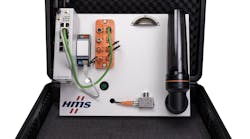The Role of Private 5G for Enterprises
The trend toward digitizing production assets and workflows (often referred to as Industry 4.0) promises great opportunities for enterprises across the board, as it lessens the reliance on manual labor, increases the efficiency and quality of enterprise operations, and decreases carbon footprint. The latter becomes particularly important, as rising energy prices—in response to several geopolitical crises—continue to put enterprises under immense pressure to remain profitable.
As warehouses are characterized by a multitude of concurrently running operations and processes, automating these workflows will greatly increase efficiency and enhance productivity per warehouse. Connectivity will be a main driver behind Industry 4.0, as machines and production assets will need to be connected to transmit data. Connectivity will also be one of the keys for warehouse operators to unlock the benefits and efficiency enhancements promised by automating and digitizing workflows and processes.
In this context, private 5G will be an essential building block, as it provides important features that will address warehouse managers’ key pain points:
- Massive Machine Type Communication (mMTC) capabilities will support the connectivity of up to 1 million devices per 0.38 square mile.
- The supported bandwidth of 10 Gigabits per Second (Gbps) in the uplink and 20 Gbps in the downlink (through Enhanced Mobile Broadband (eMBB)) capabilities will enable the automation of particularly data-intensive processes.
- Ultra-Reliable Low Latency Communication (URLLC), as well as support for Time Sensitive Networking (TSN) and deterministic networking, make 5G particularly useful for mission or even life-critical enterprise applications.
Private 5G networks enable a diverse set of Industry 4.0 tools specifically for warehouse managers. These include Condition-Based Monitoring (CBM), Real-Time Location System (RTLS)/asset tracking, inventory management, Augmented Reality (AR) glasses, wearables, building automation, robotics, and more.
Continue reading for insight into private 5G use cases for warehousing and logistics including receiving, picking, and packing; machine vision and camera solutions; and robotics. Additionally, gain insight into making the business case for 5G in your warehouse.






